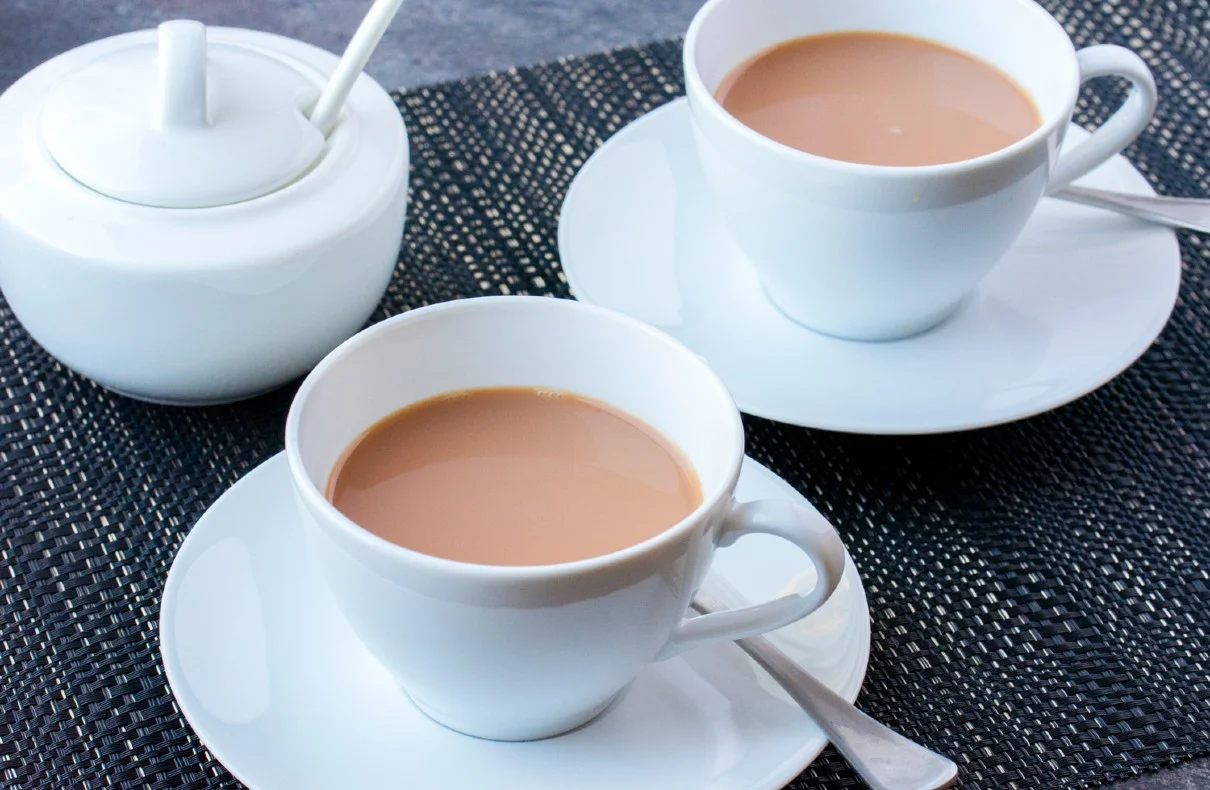
Tea has long been a beloved beverage around the world, with each country having its own traditions and preferences when it comes to brewing the perfect cup. Recently, an American scientist, Michelle Francl, has caused quite a stir with her unconventional tea hack – adding a pinch of salt to enhance the flavor. This unexpected suggestion has sparked a trans-Atlantic debate, with reactions ranging from outrage to curiosity.
Francl, a chemistry professor at Bryn Mawr College, shared her insights on achieving the “perfect cup of tea” in her recently published book, “Steeped: The Chemistry of Tea.” One of her controversial recommendations is the addition of a pinch of salt to tea. According to Francl, this small amount of salt can reduce the bitterness of tea by blocking the bitter receptors in our mouths. She traced this idea back to 8th-century manuscripts from China, where tea was mixed with saltwater.
However, this suggestion has not been well-received in Britain, where tea is deeply ingrained in the culture. Brits are known for their love of tea, and any alteration to the traditional brewing process is met with skepticism. The suggestion of adding salt to tea has been met with howls of outrage and disdain from tea-lovers in the UK.
Scott Disick’s Adorable Daughter Penelope Recreate the Saltburn Dance
The controversy surrounding Francl’s tea hack even caught the attention of the U.S. Embassy in London. In a lighthearted social media post, the embassy reassured the British public that adding salt to their national drink is not official United States policy. The tongue-in-cheek statement emphasized the importance of unity when it comes to tea and humorously added that the embassy would continue making tea “in the proper way – by microwaving it.”
The embassy’s response was intended to be a playful nod to the cultural differences between the U.S. and the UK. However, it highlights the passion and intensity with which tea is regarded in both countries.
Francl’s book, “Steeped: The Chemistry of Tea,” is the culmination of three years of research and experimentation. It delves into the more than 100 chemical compounds found in tea and offers insights on how to brew a better cup. Francl’s goal is to bridge the gap between chemistry and tea brewing, making the science accessible to non-chemists.
One of the key points Francl makes in her book is that adding a small amount of salt to tea can reduce its bitterness. As previously mentioned, the sodium ions in salt block the bitter receptors in our mouths, making the tea taste less bitter. However, it’s important to note that Francl recommends using just enough salt to achieve this effect without altering the overall taste of the tea.
Francl also advocates for a quick steeping technique to enhance the flavor of tea. She suggests agitating the tea bag briefly but vigorously in the cup of hot water. This method helps to extract the desired compounds from the tea leaves without over-extracting the bitter tannins, which can contribute to a sour taste. By dunking and squeezing the tea bag, the tea is steeped more efficiently, resulting in a well-balanced flavor profile.
To maximize the release of caffeine and antioxidants, Francl emphasizes the importance of pre-warming the mug or teapot before brewing the tea. By pre-heating the vessel, the tea stays hot for a longer period, allowing the flavors to develop fully. This step is often overlooked but can make a significant difference in the overall tea-drinking experience.
Another point of contention among tea enthusiasts is the order in which milk should be added to tea. Francl recommends adding milk to the cup after pouring the tea, rather than before. This is a departure from the traditional British practice of adding milk to the cup first. Francl contends that adding milk after the tea allows for better control over the desired strength and color of the tea, as well as preserving the flavor and aroma.
Europa: A Moon of Jupiter and Its Potential Habitability
In addition to the salt hack and the quick steeping technique, Francl offers various other tips and tricks to elevate the tea-drinking experience. Some of these include:
-
Using loose leaf tea: Francl suggests using loose leaf tea instead of tea bags for a more flavorful and aromatic cup of tea. Loose leaf tea allows for better infusion and ensures a fuller-bodied brew.
-
Using tea bags only once: Francl advises using tea bags only once, as the second time around, there is no caffeine left in the bag. This recommendation aligns with the belief that the first infusion yields the best flavor and caffeine content.
-
Incorporating lemon juice: Francl suggests adding a drop of lemon juice to tea to address any potential “scum” on the water’s surface. Lemon juice helps to dissolve mineral deposits and imparts a subtle citrusy flavor to the tea.
Francl’s tea hack has prompted speculation about the cultural differences between tea consumption in the United States and Britain. She ponders whether the divide is due to differences in caffeine consumption or a desire to rebel against the parent country.
The United States is often associated with coffee consumption, while the UK has a longstanding tea tradition. Coffee, being higher in caffeine content, may lead Americans to have a different palate and approach to tea. Additionally, the historical context of the American Revolution and the Boston Tea Party might contribute to a cultural inclination towards rebellion and independence, which could manifest in unconventional tea practices.
Tea holds a special place in British culture, and any proposed alterations to the established traditions can spark strong reactions. The British take their tea seriously and have developed elaborate rituals and etiquettes around its preparation and consumption. The debates and discussions surrounding Francl’s tea hack highlight the deep-rooted attachment that the British have to their national drink.
